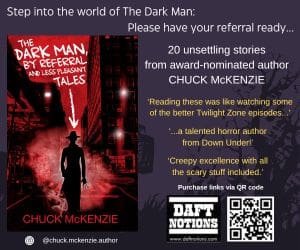The Thrilling Intersection: Ideas for Your Next Sci-Fi Horror Novel

Are you a science fiction writer considering a trip into horror country? Or a horror writer ready to swerve into the sci-fi lane? Either way, you’re in luck. The sci-fi horror subgenre is ripe for the picking. It offers countless unexplored avenues and alleyways, just waiting to be discovered.
Ethan Reid, author of The Undying, once contributed to an article on Simon & Schuster’s literary blog. The post was entitled “When Books Live at the Thrilling Intersection of Sci-Fi and Horror.” I’ve always liked that phrase, the thrilling intersection. What better way to describe the blending of these two genres?
You start down one path, the science fiction one in most cases, and it feels familiar. You’ve been there before. You recognize the landscape. But then you enter a shadowy cross street where something terrible emerges. Buckle up … you’ve reached the intersection.
Despite the many stories that have been written within this subgenre, there’s still room for innovation. The modern speculative fiction writer has myriad avenues to explore. A good way to start is by listing the common components of each genre:
- Your science fiction list might include things like time travel, dystopia, space exploration, AI, robots, alien races, future technology, etc.
- Your horror list might include demons, vampires, zombies, serial killers, witches, madmen, hauntings, etc.
Next, take an element from your sci-fi group and merge it with something from the horror group. Try one after another. Keep going until you find something that makes your heart race and your wheels turn.
Maybe you end up with an apocalypse of witches. Or a zombie outbreak on a generation ship. Or a tale of demonic possession that takes place on Mars. You get the idea. Point yourself toward that “thrilling intersection,” and step on the gas.
Generating Ideas for a Sci-Fi Horror Novel
Here are some additional ideas for a sci-fi horror story generated from the method above. Want to use one? Be my guest. Just let me know when the book comes out. I’d love to read it!
- Android serial killer
Has anyone written an android serial killer novel? If they have, I haven’t read it. And even if they have, there’s plenty of room for creativity here. Lots of ways to approach the intersection. I can see a murderous hacker using hijacked androids to commit his murders, while an intrepid FBI agent races against time to track him down. Sort of a Silence of the Lambs meets Do Androids Dream of Electric Sheep.
- Science as entertainment gone horribly wrong
Jurassic Park, a popular sci-fi horror novel before it became a movie franchise, used the “science-as-entertainment” model to chilling effect. Michael Crichton had been struggling with the concept of dinosaur cloning in a screenplay he was writing. Then he came up with the idea of a theme park full of living dinosaurs and wrote a novel around it. The rest is history.
But there’s unexplored territory here as well. All you have to do is consider the individual pieces. In mathematical terms: Scientific advancement + greed and exploitation = something horrible happening.
Your job, as the writer of such a tale, would be to choose those ingredients and see where they take you. What kind of scientific or technological advancement could be exploited for entertainment purposes 20, 50 or 100 years from now? How might they go south?
- A mysterious signal from deep space
The whole signal-from-space thing has been done before, in both novel and movie form. But again, there’s a lot of room for innovation. After all, the signal itself is just the inciting incident. It sets the story in motion. What humans find when they explore that signal, and how it changes them, is where the real story lies.
This concept starts as pure science fiction. You could take it to that thrilling intersection in a number of ways. Maybe the signal turns out to be a distress call on auto-repeat, luring explorers toward the same hostile lifeforms that wiped out the originators. Maybe a member of the team goes mad along the way, turning on the others. Maybe they encounter a pathogen unlike anything humans have seen before.
Want some inspiration? Start by looking into fast radio bursts (FRBs) and the so-called “Wow signal.” That should get your creative wheels turning.
- A rogue group releases a chilling bioweapon
Like the “signal” idea above, the bioweapon here is just the inciting incident. It gives you, the writer, a way to create something new and terrifying, something we haven’t seen before.
Writer Alex Garland employed this concept when he wrote the screenplay for 28 Days Later. He created a disturbing new plague that spreads rapidly and turn humans into violent, animalistic killers. He created his own rules for the transmission and symptoms of the disease. He shaped the virus to support the kind of story he wanted to tell.
If you can imagine it, you can write it. How might you use this concept for your next novel? How could you innovate, twist and shape? What haven’t we seen in the deadly plague subgenre yet?
- People wake from a years-long cryosleep to find…
Cryosleep is part fact, part fiction — and full of storytelling possibilities. The current science behind cryosleep (or “torpor,” as it’s known) is pretty limited. But in sci-fi, you can take the concept of suspended animation and do with it as you please.
You could have a group of people lie dormant for hundreds of years following an apocalyptic event, only to discover a terrifying new threat to humanity upon waking. You could use it to send humans into the farthest reaches of space, where unknown dangers dwell. Possibilities abound.
Science fiction stories cater to our sense of wonder, our dreams of a future or alternate existence. Horror stories play to our fears, both real and imagined. Put them together, and you’ll take readers on a thrilling journey they won’t soon forget.

Brandon Cornett
Author
Brandon Cornett is a longtime writer whose stories have appeared in the Mississippi Review and other journals. His first novel, Purgatory, is a horror-based thriller with a reality TV tie-in, available now on Amazon. His next novel will be out in 2020. Brandon also blogs about speculative fiction with a nerdy level of enthusiasm over at https://www.cornettfiction.com/blog/.
- About the Author
- Latest Posts
Stuart Conover is a father, husband, published author, blogger, geek, entrepreneur, horror fanatic, and runs a few websites including Horror Tree!











I’m constantly disappointed by the little choices for Sci Fi horror books. So few that they don’t even have their own category in a bookstore. The lists I find are never really horror unless it was from a Movie like Alien, Predator, Lifeforce, etc. Rarely can I ever find a good sci fi horror book that is actually scary at all, I’m surprised King has never tried or Clive Barker